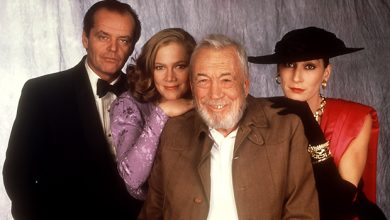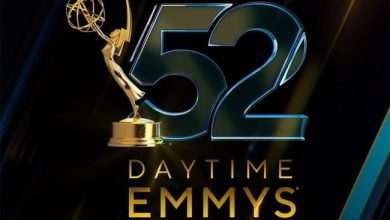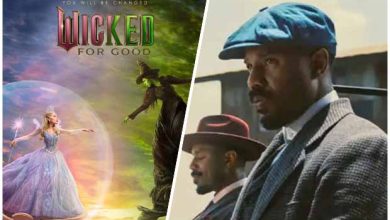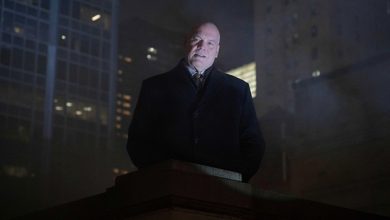Thomas and Julia Newman Collaborate to Score Monsters: The Lyle and Erik Menendez Story
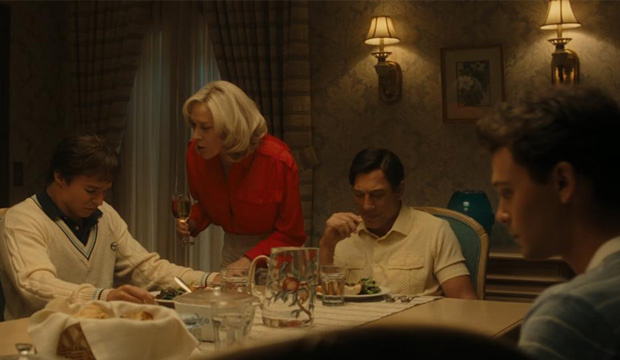
This question was posed by 15-time Oscar-nominee Thomas Newman to his daughter and fellow composer, Julia Newman, as she crafted the score for Monsters: The Lyle and Erik Menendez Story. It was a fair question, considering Julia wasn’t old enough to remember the headlines about brothers Lyle (Nicholas Alexander Chavez) and Erik Menendez (Cooper Koch), who in 1989 murdered their wealthy parents, José (Javier Bardem) and Kitty (Chloë Sevigny). As Julia told Gold Derby, it was important to “take a step back and understand that even though this is a dramatization, it’s a dramatization based on real people.”
Julia collaborated with her father in writing the score for Monsters, the second installment of Ryan Murphy and Ian Brennan’s anthology series that peels back the layers of salacious true-crime stories. “We wanted to honor that it was real,” says Thomas, and “not editorialize it at all, but take the drama at face value.” That was important because the series was dealing with “not only two living people” in Lyle and Erik, “but family members and people who would have an awful lot of opinions about all of this stuff.” With that in mind, the Newmans got to work “putting noises and colors up” on the screen, “and discovering vocabulary and asking yourself when you find it, ‘Why does it work?'”
Julia admits “the tone of it [wasn’t] immediately obvious to me,” and it wasn’t until the composers introduced a plucked acoustic bass line in Episode 1 that the music started to make sense. “It was this moment of understanding that there is a real stylized element of what the show is. I think it took me hearing that and seeing it next to picture to understand, really fundamentally, the element that style was going to play in the broader vocabulary.”
Thomas concurs: “It was very stylishly put together, so you had to honor that. … There were elements of style pictorially that were tried and rejected in terms of how far can you go with fantasy, and with humor?” Working in collaboration with the filmmakers, “we could push against things and see if we’d gone too far, or if we hadn’t gone far enough. Style can get fuzzy in terms of how much you push towards it or how much you step away from it.”
Julia explains that because “the show played really well with different perspectives, which was the point,” it made their job as composers “slightly more obvious.” Monsters “wasn’t just focused on the perspective of the boys, or just focused on the perspective of the parents. As an audience member, you were meant to stay present in the perspective that was being offered to you in that episode.”
The series also sought to evoke the era when the events took place, which was the late 1980s through early 1990s, augmenting the score with several songs from the period. “Typically, when that happens,” says Thomas, “you ask yourself as a composer, ‘Do you want to play into that language or play against that language?’ Those were all conversations we would have [with each other and the showrunners].”
Prior to working together on Monsters, the Newmans each had a hand in composing Feud: Capote vs. the Swans, with Thomas writing the main title theme and Julia penning the score. This time out for Monsters, they shared equal duties. “There were moments where Julia would bring ideas to me, or I would bring ideas to her,” Thomas recalls. “We would work on them together, sometimes apart. There were moments when I would be mixing and Julia would be mixing. It was a very shared collaboration.”
See More ...
- Blumhouse Acquires Twisted Pictures’ Share, James Wan to Lead Future of Saw Franchise
- Warner Archive Expands Looney Tunes Collections with New Remastered Releases
- Celebrating Roger Ebert: A Life of Film, Empathy, and Lasting Legacy
- Karen Read Murder Trial Verdict and How to Watch the Docuseries
- Michael Shanks Responds to Copyright Lawsuit Alleging Together Is a Rip-Off
They submitted the second episode, “Spree,” for Emmy consideration, and to Julia’s mind, that was the perfect choice because, “the murder of José and Kitty Menendez really is at the heart of this story.” When that’s introduced “as a dramatic sequence” in Episode 1, “it’s scored in a much more action-based, present-tense way.” The opening of Episode 2 “is actually the second time that you really see that murder, and particularly the aftermath, the moments right after it. We felt that there was something compelling about looking at a murder like that from a really different perspective and vocabulary. … You knew exactly what it was that was going on, and now we got to explore the psychology of it in a slightly different way.”
“The sense of how structurally the whole arc of the nine hours would go was revealed at the beginning of that second hour,” explains Thomas. “You really got a much better sense of how the story was going to unfold.”
Ultimately, their musical decisions boiled down to a contrast between the horror of their crimes and the Menendez brothers’ charisma. “They were likable,” Thomas divulges. “They were attractive, [which] seems like a very odd word in the context of brutal murderers. But maybe that’s the beauty of film and presentation. It gives you a yin and a yang of something that on the one hand is one thing and on the other hand is another.”
“You have a conception of what a monster looks like, and this [series] challenged that,” says Julia. “I do think that their attractiveness, their normal-ness in some ways, is what makes the story complex. If they are killers, isn’t it scary that two seemingly normal boys from a nice family in Beverly Hills would take a shotgun to their parents head? On the other hand, wouldn’t it be terrifying if the justice system or the people consuming all of the gossip rags about it are the monsters for having accused these two innocent young boys of such a brutal crime that they didn’t commit? I think perception, broadly speaking, plays a huge role in this, and these boys being these attractive characters is a big part of what made this story so interesting.”
